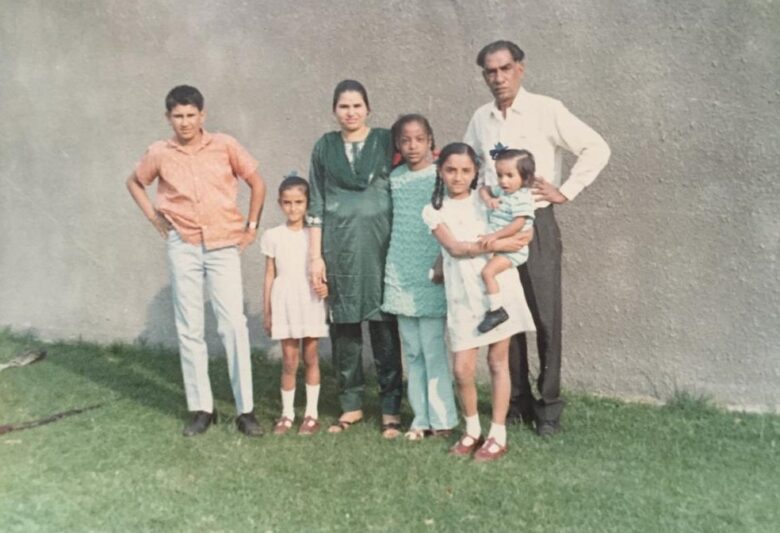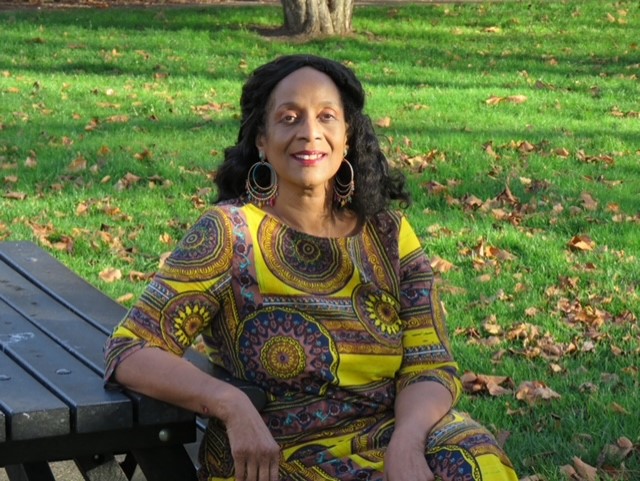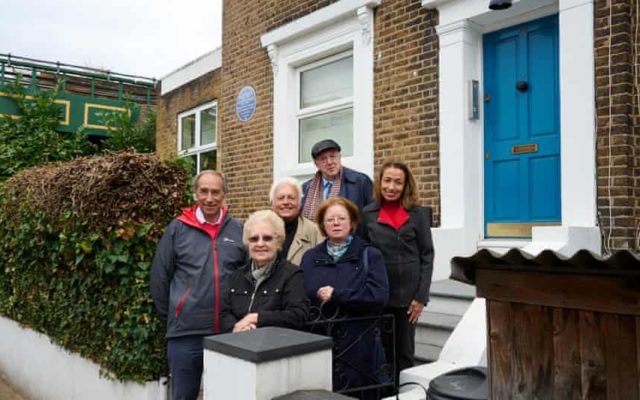‘Our history of being Black and refugees should be re-told and never forgotten.’
Author and Asian–African refugee Bharti Dhir shares her experience of fleeing Uganda under Idi Amin’s brutal regime.
06.10.22
This Black History Month (and every month) we’re celebrating Black refugees, asylum seekers and their supporters. As told in her own words, this is Bharti’s story.
—
I was born in September in Kabale, a small town in Uganda. Soon after my birth, I was abandoned on the roadside; no-one knows my actual date of birth. Everyone thought I was an Asian baby and families came forward to adopt me until they realised that I was of dual heritage – both African and Asian – and the numbers dwindled away. They did not want an African baby. There were some who also rejected me on finding out I was a girl, so both racism and sexism played a large part in the messages I was given from the community growing up.
My adoptive parents were from the Punjab, India, and convinced the authorities to allow them to adopt me, as my mother had had a spiritual dream that I was to be in her family. She was pregnant at the time with another baby girl, who was born in November of the same year.
In August 1972, President Idi Amin had a dream to expel all Asians from the country as he said that he had a divine message that Asians had exploited the country and its people long enough. He gave 90 days for all Asians to leave Uganda.
By this time, my Mother was a widow in her 30’s with five children. Idi Amin’s soldiers had taken all the cars in Kabale and we relied on one man, who was the only one allowed a car, to take all families out. We were told to be ready and waiting, any time of the day. He did not care what we were doing – we would have to drop everything and go in his car as he needed to get around 45 families out of Kabale. We were warned that the soldiers would use any excuse to shoot people dead; to make sure we had no money at all in our luggage as they would call it smuggling and use that as an excuse to kill.

Bharti alongside her family during her formative years.
On the day we left, I felt more of a sense of curiosity than fear as we left our home. We were excited at the prospect of coming to England. The road to Kampala, the capital, was 6 to 7 hours long. When we came to the first check point the soldiers rifled through our belongings. The excitement was replaced by fear as they threatened to shoot my brother if they found one more cent in his clothes. Two cents (equivalent of pennies) had fallen out of a trouser pocket. We knew they were serious as they had just shot a boy in the car in front of us, just because he was disabled.
Luckily, nothing else was found and then their attention turned to me. The soldier in charge pointed his gun at my mother and ordered her to leave me behind. He said, “She is one of us. What use is she where you are going?” My mother shook her head and said no.
He asked her three times and cocked his trigger when he asked the final time. She continued to refuse saying, “She is my daughter. I cannot leave her.” There was a pause and he put his gun down saying, “I salute your courage.”
We were told we could go but even in the car, the fear persisted. They could change their minds even then, and we were convinced we would feel the bullets rip into the car, but thankfully, we made it safely to Kampala.
I have so much more to say and tell you about what happened Kampala and the drama that unfolded even as we left in the plane. The racial attacks we experienced when we were re-housed eventually after leaving the resettlement camp in Greenham.
Our history of being Black and refugees should be re-told and never forgotten.
I am grateful to be here. Idi Amin may have sought to break our spirit but as a girl and then woman, England has given me education and career opportunities which I may never have been allowed to have as a female growing up in Uganda in the 60’s.

Bharti Dhir
I would say to Idi Amin – despite everything we have been through and coming from a refugee background, my sense of worth is liberated and will be celebrated forever.
—
To read more about Bharti’s story, please visit her website here. You can also purchase her book, Worth, in Waterstones.




